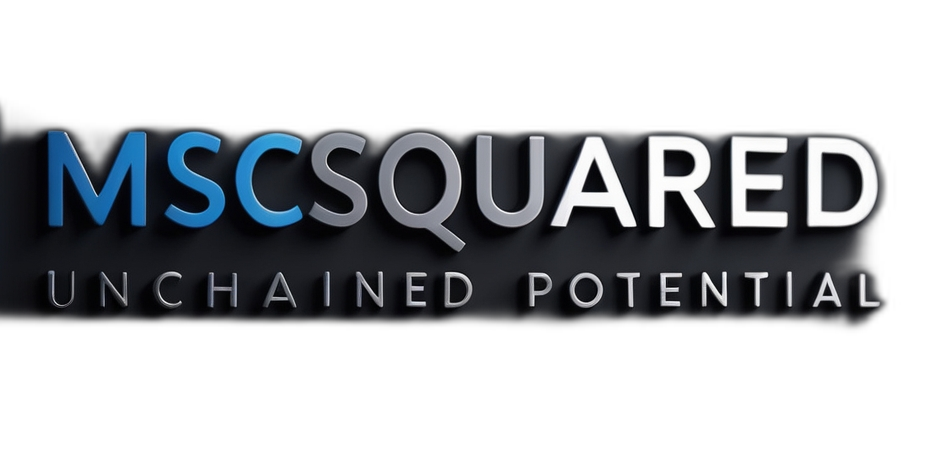In the rapidly evolving world of financial technology, smart contracts have emerged as a groundbreaking innovation, promising to revolutionize the way we conduct business and execute agreements. These self-executing contracts, with their terms directly written into code, are poised to transform industries ranging from finance and real estate to supply chain management and beyond. In this comprehensive exploration, we’ll delve into the intricacies of smart contracts, their potential applications, and the impact they’re likely to have on the future of finance and business operations.
Understanding Smart Contracts: The Basics
At its core, a smart contract is a self-executing agreement with the terms of the contract directly written into lines of code. This code, along with the agreements contained therein, exists across a distributed, decentralized blockchain network. Smart contracts allow for transactions and agreements to be carried out among disparate, anonymous parties without the need for a central authority, legal system, or external enforcement mechanism.
The Essence of Automation
The beauty of smart contracts lies in their ability to automate complex processes. Once the predetermined conditions coded into the smart contract are met, the contract automatically executes the agreed-upon terms. This could involve transferring funds, issuing licenses, or triggering any number of other actions. The automation not only speeds up traditional processes but also significantly reduces the potential for human error or manipulation.
Transparency and Trust
One of the key advantages of smart contracts is the unprecedented level of transparency they bring to agreements. Because smart contracts are built on blockchain technology, all transactions are recorded and can be verified by anyone with access to the network. This transparency builds trust among parties and reduces the likelihood of disputes. Moreover, the immutable nature of blockchain ensures that once a smart contract is deployed, it cannot be altered, providing a secure and tamper-proof environment for executing agreements.
The Technology Behind Smart Contracts
To truly appreciate the potential of smart contracts, it’s essential to understand the technology that powers them. Smart contracts are typically built on blockchain platforms, with Ethereum being one of the most popular choices due to its robust smart contract functionality.
Blockchain: The Foundation
Blockchain technology serves as the backbone for smart contracts. It provides a decentralized, distributed ledger that records all transactions across a network of computers. This decentralized nature ensures that no single entity has control over the entire chain, making it incredibly difficult to hack or manipulate. The blockchain’s immutability and transparency make it an ideal platform for executing and recording smart contract transactions.
Coding Languages and Platforms
Smart contracts are typically written in specialized programming languages designed for blockchain platforms. Solidity, for instance, is the primary language used for creating smart contracts on the Ethereum blockchain. Other platforms like Hyperledger Fabric support smart contracts written in more general-purpose languages such as Go or JavaScript. The choice of platform and language depends on the specific requirements of the project and the ecosystem in which it will operate.
Real-World Applications of Smart Contracts
The potential applications of smart contracts are vast and varied, spanning multiple industries and sectors. Let’s explore some of the most promising use cases where smart contracts are already making a significant impact or show great potential for future implementation.
Financial Services
In the financial sector, smart contracts are revolutionizing traditional processes by automating and streamlining various operations. From loan processing and insurance claims to trade finance and derivatives, smart contracts are enhancing efficiency and reducing costs. For instance, in the insurance industry, smart contracts can automatically process claims based on predefined conditions, significantly reducing processing times and minimizing the potential for fraud.
Real Estate
The real estate industry stands to benefit greatly from smart contract technology. Property transactions, which traditionally involve multiple intermediaries and lengthy processes, can be streamlined through the use of smart contracts. These contracts can automate processes such as property transfers, rental agreements, and even the distribution of rental income for fractional property ownership. By reducing the need for intermediaries and paperwork, smart contracts can make real estate transactions faster, more transparent, and less prone to disputes.
Supply Chain Management
Smart contracts have the potential to transform supply chain management by increasing transparency, traceability, and efficiency. By automating processes such as order tracking, inventory management, and payment settlements, smart contracts can help reduce errors, delays, and fraud in complex supply chains. For example, a smart contract could automatically release payment to a supplier when a shipment is verified as received, streamlining the entire process and reducing administrative overhead.
Benefits and Challenges of Implementing Smart Contracts
As with any emerging technology, smart contracts come with their own set of advantages and challenges. Understanding these can help businesses make informed decisions about implementing smart contracts in their operations.
Benefits of Smart Contracts
The advantages of smart contracts are numerous and significant. Here are some of the key benefits:
- Automation and Efficiency: By automating processes that traditionally require manual intervention, smart contracts can significantly reduce processing times and operational costs.
- Transparency and Trust: The blockchain-based nature of smart contracts ensures that all transactions are visible and verifiable, fostering trust among parties.
- Accuracy: By eliminating the need for manual data entry and processing, smart contracts reduce the likelihood of human error.
- Security: The cryptographic nature of blockchain technology makes smart contracts highly secure and resistant to tampering.
- Cost Reduction: By removing intermediaries and streamlining processes, smart contracts can lead to significant cost savings for businesses.
Challenges and Considerations
While the potential of smart contracts is immense, there are several challenges that need to be addressed:
- Legal and Regulatory Uncertainty: As a relatively new technology, the legal status of smart contracts is still evolving in many jurisdictions. This regulatory uncertainty can pose challenges for widespread adoption.
- Technical Complexity: Developing and implementing smart contracts requires specialized technical knowledge, which can be a barrier for some organizations.
- Immutability: While the immutable nature of smart contracts is generally an advantage, it can also be a challenge if errors are found in the contract code after deployment.
- Interoperability: As different blockchain platforms emerge, ensuring interoperability between smart contracts on different networks becomes crucial.
- Oracle Dependency: Smart contracts often rely on external data sources (oracles) to trigger actions. Ensuring the reliability and security of these data sources is critical.
The Future of Smart Contracts
As we look to the future, it’s clear that smart contracts will play an increasingly important role in shaping the digital economy. The continued development of blockchain technology and the growing interest from both the private and public sectors suggest a bright future for smart contracts.
Integration with Emerging Technologies
The true potential of smart contracts may be realized when they are combined with other emerging technologies. For instance, the integration of smart contracts with Internet of Things (IoT) devices could lead to new possibilities in areas like supply chain management and smart cities. Imagine a world where smart contracts automatically adjust energy consumption in buildings based on real-time data from IoT sensors, or where they manage traffic flow in cities by dynamically adjusting traffic light patterns.
Standardization and Interoperability
As the adoption of smart contracts grows, we can expect to see increased efforts towards standardization and interoperability. This will likely involve the development of common standards and protocols that allow smart contracts to operate seamlessly across different blockchain networks and integrate with existing systems. Such standardization will be crucial for the widespread adoption of smart contracts in enterprise environments.
Regulatory Developments
The legal and regulatory landscape surrounding smart contracts is likely to evolve significantly in the coming years. As governments and regulatory bodies gain a better understanding of the technology, we can expect to see more comprehensive legal frameworks emerging. This regulatory clarity will be essential for the mainstream adoption of smart contracts, particularly in highly regulated industries like finance and healthcare.
Implementing Smart Contracts: Best Practices
For organizations considering the implementation of smart contracts, there are several best practices to keep in mind to ensure successful deployment and operation.
Thorough Planning and Design
Before implementing a smart contract, it’s crucial to thoroughly plan and design the contract logic. This involves clearly defining the terms and conditions of the agreement, identifying all possible scenarios and edge cases, and determining how the contract will interact with external systems and data sources. A well-designed smart contract can prevent many potential issues down the line.
Rigorous Testing and Auditing
Given the immutable nature of smart contracts once deployed, thorough testing is absolutely critical. This should include not only functional testing to ensure the contract behaves as expected under various scenarios but also security auditing to identify and address potential vulnerabilities. Many organizations opt to have their smart contracts audited by third-party security firms specializing in blockchain technology.
Governance and Upgradability
While smart contracts are designed to be immutable, it’s important to consider governance mechanisms and upgradability options. This could involve implementing proxy patterns that allow for upgrades to the contract logic while maintaining the same contract address and state. Having a clear governance structure in place for managing and potentially upgrading smart contracts is crucial for long-term sustainability.
Compliance and Legal Considerations
Ensuring that smart contracts comply with relevant laws and regulations is essential. This may involve working closely with legal experts to ensure that the terms encoded in the smart contract align with legal requirements and that the contract execution mechanism is legally binding in relevant jurisdictions.
Conclusion: The Promise of a Smart Contract-Enabled Future
As we stand on the cusp of a new era in digital agreements and automated transactions, smart contracts represent a powerful tool for reshaping how we conduct business and manage financial agreements. By combining the security and transparency of blockchain technology with the efficiency of automated execution, smart contracts have the potential to streamline processes, reduce costs, and create new opportunities across a wide range of industries.
However, realizing this potential will require overcoming significant challenges, including technical hurdles, regulatory uncertainties, and the need for widespread education and adoption. As the technology matures and these challenges are addressed, we can expect to see smart contracts playing an increasingly central role in our digital economy.
For businesses and individuals alike, now is the time to start exploring the possibilities of smart contracts. Whether you’re looking to streamline existing processes or create entirely new business models, understanding and leveraging smart contract technology could provide a significant competitive advantage in the years to come.
As we move forward, it’s clear that smart contracts will be more than just a technological innovation – they have the potential to fundamentally change the way we think about trust, agreements, and value exchange in the digital age. The future of finance and business operations is smart, automated, and decentralized – and smart contracts are leading the way.
Disclaimer: This blog post is intended for informational purposes only and does not constitute legal, financial, or professional advice. The field of smart contracts and blockchain technology is rapidly evolving, and readers are encouraged to conduct their own research and consult with qualified professionals before making any decisions based on the information presented here. While we strive for accuracy, the nature of this emerging technology means that some information may become outdated quickly. Please report any inaccuracies so we can correct them promptly.


Leave a Reply